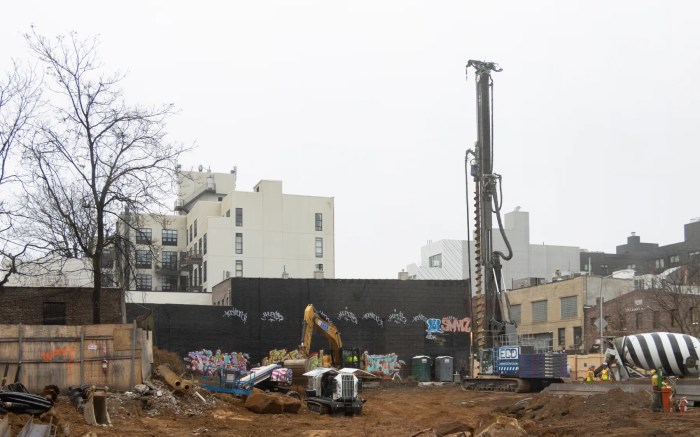By Adrienne Urbanski
Estrogenius Festival gives women the spotlight
Bothered by how few opportunities exist for women in theater, producer and writer Fiona Jones decided to launch a festival showcasing the underused female talent around her. The result was the Estrogenius Festival, which spotlights female actors, writers, directors, artists, dancers, and musicians. Now in its eighth season, the festival has expanded its offerings to include a rotation of 19 short plays; “Girl Power,” performances written by and for teens; and “Voices of Africa,” a collaboration with Peace Corps Niger, in which pieces penned by girls from Niger are performed, with all proceeds funding the girls’ educations.
Jones, the festival’s executive producer and founder, discussed why a need for the festival exists.
ADRIENNE URBANSKI: What lead you to create the Estrogenius Fesitval?
FIONA JONES: It really started because I just looked around Manhattan Theater Source and thought, gosh there are an awful lot of women here who are just not working as much as they should be for all of the talent that the have. So much of theater is dominated by male writers and male directors. It just frustrated me that all of this talent I was seeing around me was just not being utilized. I wanted to create an opportunity for female voices to be heard. The first festival was just two weeks, and now it’s grown into a month-long celebration of women, and has expanded to include other art forms besides theater.
Female-centric theater showcases have become more common in recent years; what makes yours different from the rest?
Well first we accept submissions from men. I didn’t want to leave anyone out of anything. It seemed hypocritical for me to complain about women being left out and then exclude people. I wanted to encourage men to write and explore deep and complex female voices. [Men are required to submit pieces about women but] women can submit a play about anything really. We’ve sort of shied away from “women’s issues” plays, and plays that are very didactic and preachy. I can only handle so many “I hate my stupid boyfriend”-type plays. Men bashing gets boring — there’s a lot more we have to say than that. We do show some women’s issues-type plays that were well-written and beautifully disguised as something else.
Why do you think fewer opportunities exist for women in theater?
I think part of it has to do with the fact that most theaters have male artistic directors, and most artistic directors find male protagonists universal and don’t find female protagonists universal. A play with a woman at the center is considered a woman’s play.
In show business in general, there’s a cult of youth and a disregard for women once they’re forty years old. There are a couple of dead zones from women. You go from being 25 and being young and cool to suddenly being someone’s mother; there’s not a role in the middle. You get in a zone where roles are not being created for you. It’s getting better, though, as women are getting into positions of power in show business. I think the challenge is that the market is primarily driven by money and young and sexy are very easy things to sell. You have to have a director who’s going to take a chance on something that’s thoughtful and has a worldview. The minds in show business are very reluctant to take chances. Very few things on Broadway are new things.
Right now we just see things like a film turned into a musical or a revival of a play that’s already been done five times already. Creatively, I don’t find that very interesting.
Do you think that things have improved for women in recent years?
I do. I think in general we’re inching up there with a little more power and influence as women do more producing and directing. They’re able to show a little more understanding of how plays centered on females can be seen as universal, too. A lot of actresses are creating their own shows and opportunities, and maybe it has to do with women driving their boats a little more.
The range of offerings in the festival is so diverse and covers so many genres. Is there anything that unifies all of them?
In a strange way what ties them all together is that they’re very different. We always aim to attract artists from many different backgrounds. And we’ve featured a lot of plays that were very atypical for an all-women showcase, like we had a female written and directed play about NASCAR drivers that had an all-male cast, [which captured] the feeling of being in a racecar from just some guys sitting on stage in chairs. I think pieces like that are a nice surprise for people expecting to come and see nothing but a lot of plays on body issues.
The Estrogenius Festival runs through October 13 at the Manhattan Theater Source, 177 MacDougal Street, 212-260-4698, theatresource.org.
Community board calendar Oct. 3-11







































